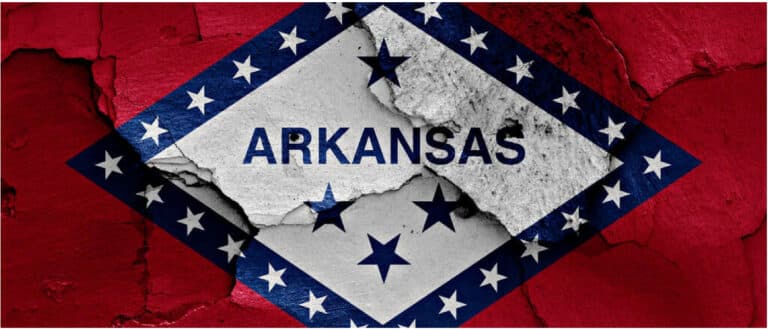Virginia Sports Betting Regulations: Highlights and Details

Virginia was an unexpected but welcome addition to the list of states with sports betting. Virginia also passed one of the most convoluted sports betting laws, compounding the need for clear regulations.
The Virginia Lottery Board released Virginia’s permanent regulations on Tuesday. The rules did an excellent job laying out how the Virginia sports betting market will operate.
Betting USA has compiled the most interesting and important details, and as you’ll quickly see, the Lottery Director has immense power to authorize wagers, licenses, and many other regulatory requests. That is the type of regulatory nimbleness many other jurisdictions would love to have.
Sports Wagers Allowed in Virginia
Proposition wagers and in-play bets are allowed except for prop bets “on college sports or… wager placed on any type of possible injury, unsportsmanlike conduct, or any other officiating call.
The regulations require the Director to post a complete Authorized Sports Events, Leagues, and Bets list on the Lottery’s website. The Director can update the list at any time, and operators can request specific leagues, events, bets. These requests must be made at least 72 hours before the event, and approval is at the discretion of the Director, based on the following criteria:
- Input from the sports governing body or conductor of the sporting event;
- Whether the outcome of the sporting event is determined solely by chance;
- Whether the outcome of the sporting event can be verified;
- Whether the event generating the outcome is conducted in a manner that ensures sufficient integrity controls so the outcome can be trusted;
- Whether the outcome may be affected by any bet placed; and
- Whether the event is conducted in conformity with all applicable laws
Conversely, a sports governing body can request the removal of approved wagers if it:
“has a good faith, reasonable basis to believe such restriction, limitation or prohibition is reasonably necessary to protect the integrity or the public’s confidence in the integrity of the sports governing body,”
Official League Data Is Sort of Mandated
As is the case in a few other states, Virginia requires operators to settle in-play wagers through official league data, supplied by the league or an approved third party.
Per the Virginia sports betting regulations:
- A sports governing body may submit a request to the Director in the form and format required by the Director to require permit holders to use official league data to settle those bets placed after a sporting event has started.
- Unless a sports governing body, pursuant to this section, has requested that permit holders use official league data to settle bets, a permit holder may use any lawful data source for determining the result of a wager. A permit holder shall not purchase or use any personal biometric data unless the permit holder has received written permission from the athlete.
- A permit holder shall report to the Director the data source that it uses to resolve sports wagers. The Director may disapprove of a data source for any reason, including but not limited to, the type of wager and method of data collection.
Betting Data Available to the Leagues
The most unique aspect of the 69-page document is this passage:
“If a sports governing body notifies the Director that real-time information sharing for wagers placed on its sporting events is necessary and desirable a regulated entity shall share the information described in subsection L. with the sports governing body or its designee with respect to wagers on the sports governing body sporting events. Such information may be provided in anonymized form and may be used by a sports governing body solely for integrity purposes.”
Essentially, this allows the leagues to request proprietary wagering data from sports betting operators under the auspices of integrity monitoring.
Executive Director Can Issue Temporary VA Sports Betting Licenses
The licensing section is straightforward.
One noteworthy section is the issuance of temporary licenses, which could speed up the launch process, at the Director’s discretion:
“Upon request of an applicant, the Director may in his sole discretion issue a temporary or conditional permit, license, or registration to an apparently-qualified applicant.”
These temporary licenses expire after 180 days, but the Director can extend them for an additional 180 days.
Reserves, Insurance, and Liability Requirements
The regulations require operators to hold in reserve enough funds to cover all outstanding wagers and account balances.
That sum cannot be less than $500,000 and must equal or exceed the aggregate sum of:
- Funds held by the permit holder in player accounts;
- The total amount of funds accepted by the permit holder as wagers on sports events with outcomes that have not been determined; and
- Money owed but unpaid by the permit holder to players on winning wagers.
Further, permit holders are required to maintain specific types and amounts of insurance:
- General commercial liability insurance in the amount of $5,000,000;
- Errors and omissions insurance in the amount of $15,000,000; and
- Such other types and amounts of insurance as the Director requires.
And finally, the regulations allow permit holders to “offset loss and manage risk, directly or with a third party approved by the Director.” This can be accomplished via a liquidity pool in Virginia or, in a jurisdiction where the permit holder is also licensed.
Virginia Sports Betting Regulations are Strong on Responsible Gaming Policies
The regulations are chock full of responsible gaming policies.
Most of the policies are industry-standard and deal with marketing, advertising, and a commitment to responsible gaming. These policies include the Sports Bettors Bill of Rights printed at the end of the regulations.
The regulations do mandate sports betting sites to abide by the following Virginia sports betting rules:
- A prominent link to information about the permit holder’s self-exclusion program
- A mechanism for a player to take note of the passage of time
- The ability to initiate a “cooling off” period such as breaks in play and avoidance of excessive play
- Practices and procedures on the site do not reinforce myths and misconceptions about gambling
- Information about the website’s terms and conditions is readily accessible
- Promotional or free games do not mislead players
- Notification to players of age-verification procedures
- Access to credit is prohibited
- Fund transfers and automatic deposits are prohibited or restricted
- Games display credits/spending as cash
Self-Exclusion From Virginia Sportsbooks
Another vital part of responsible gaming is the ability to self-exclude from gambling.
Self-excluding in Virginia is a blanket prohibition that prohibits the individual from “participating in any form of legalized gaming in the Commonwealth.” Anyone breaking their self-exclusion is “prohibited from collecting any winnings or recovering any losses,” they may incur. Forfeited winnings are donated to the Commonwealth’s Problem Gambling Treatment and Support Fund.
Virginia offers self-exclusion terms of:
- Two years
- Five years
- Lifetime
The two-year and five-year self-exclusion forms can be submitted online. The lifetime exclusion must be done in person at Virginia Lottery headquarters or other approved locations approved by the Department.
Self-excluding from sportsbooks in Virginia can also extend beyond the state’s borders.
Per the regulations, “The Department will share the self-exclusion list with operators of legal gambling in the Commonwealth and that such operators, pursuant to their own policies, may extend the exclusion of the individual to offerings at the operator’s locations outside the borders of the Commonwealth.”
A late change to the regulations was removing language that would have voided active bets if an individual were to self-exclude. The new language reads:
“If a player has a pending wager and the player subsequently self-excludes, the wager may settle and the funds and account balance shall be returned to the player in accordance with the permit holder’s internal control standards.”
What Needs to be in House Rules
In addition to AML procedures:
- A method for the calculation and payment of winning wagers;
- The effect of schedule changes;
- The method of notifying players of odds or proposition changes;
- Acceptance of wagers at terms other than those posted;
- The method of contacting the permit holder for questions and complaints;
- A description of prohibited individuals and others who may be restricted from placing a wager;
- The permissible methods of funding a wager; and
- A description of all types of wagers that may be accepted.
One house rule suggested by operators that regulators chose not to include: palpable errors. In Virginia, only the Director can void a bet due to an error.
Payment Processing
The payment processing section contains another interesting regulation dealing with withdrawals. The rule requires operators to process withdrawals within ten days of the request. That seems like an excessive amount of time to process an online gambling payment in a legal, regulated market, and hopefully, Virginia operators do much better than that.
According to the new rules, Virginia sports bettors can fund their accounts with:
- Debit card
- Credit card
- Electronic bank transfer, including a transfer through third parties
- Online or mobile payment systems that support online money transfers
- Winnings or payouts
- Bonuses and promotions
- Reloadable prepaid card, which has been verified as being issued to the player and is nontransferable
- Any other means approved by the Board






